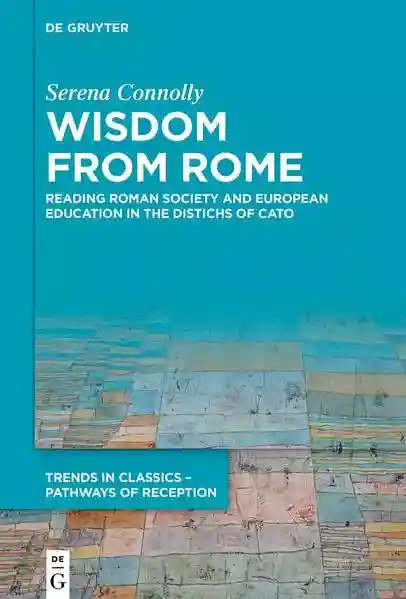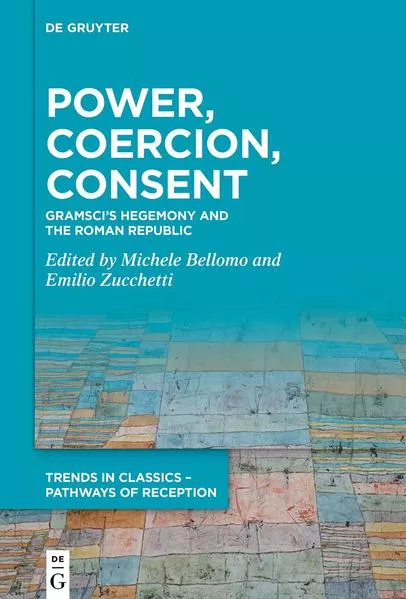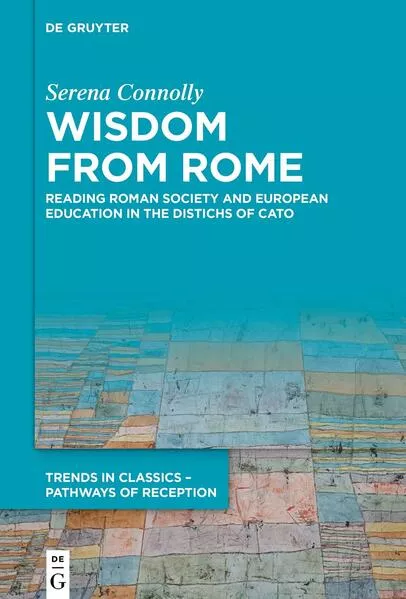Chronologie aller Bände (1 - 2)

Die Reihenfolge beginnt mit dem Buch "Power, Coercion, Consent". Wer alle Bücher der Reihe nach lesen möchte, sollte mit diesem Band von Serena Connolly beginnen. Der zweite Teil der Reihe "Power, Coercion, Consent" ist am 14.07.2023 erschienen. Die Reihe umfasst derzeit 2 Bände. Der neueste Band trägt den Titel "Power, Coercion, Consent".
- Anzahl der Bewertungen für die gesamte Reihe: 0
- Ø Bewertung der Reihe: 0
Diese Reihenfolge enthält 2 unterschiedliche Autoren.
- Autor: Bellomo, Michele
- Anzahl Bewertungen: 0
- Ø Bewertung:
- Medium: Buch
- Veröffentlicht: 14.07.2023
- Genre: Roman
Power, Coercion, Consent
This volume brings together scholars of Roman history, archaeology, history of political thought, Italian literature, and political philosophy to reflect upon the Roman Republic from its origins to the Principate (509–27 BC) by employing Gramsci’s concept of "hegemony". The use of hegemony as a category in historiographical interpretation is often limited to a cultural domination through consensus, especially in English-speaking scholarship, excluding any form of coercion. The volume aims to redress this disposition by appealing to a reading of Gramsci’s hegemony as a dialectical process: it proposes a collective use of Gramscian categories for the study of the political and social conflicts of the Roman Republic. After some theoretical contributions about these categories, and other philosophical approaches to the study of the Roman Republic (such as Machiavelli and Althusser), sections on "Urban Politics", "Imperialism and Provincial Administration", "Archaeology and Romanization", and "Political Narratives" explore Roman Politics and the internal conflict that characterized it in different geographical and chronological contexts, concluding with an "Epilogue" on the transition from the Republic to the Augustan Principate.
- Band: 8
- Autor: Connolly, Serena
- Anzahl Bewertungen: 0
- Ø Bewertung:
- Medium: Buch
- Veröffentlicht: 03.10.2022
- Genre: Roman
Wisdom from Rome
For about one thousand years, the Distichs of Cato were the first Latin text of every student across Europe and latterly the New World. Chaucer, Cervantes, and Shakespeare assumed their audiences knew them well—and they almost certainly did. Yet most Classicists today have either never heard of them or mistakenly attribute them to Cato the Elder. The Distichs are a collection of approximately 150 two-line maxims in hexameters that offer instructions about or reflections on topics such as friendship, money, reputation, justice, and self-control. Wisdom from Rome argues that Classicists (and others) should read the Distichs: they provide important insights into the ancient Roman literate masses’ conceptions of society and their views of relationships between the individual, family, community, and state. Newly dated to the first century CE, they are an important addition and often corrective to more familiar contemporary texts that treat the same topics. Moreover, as the field of Classics increasingly acknowledges the intellectual importance of exploring the reception of Classical texts, an introduction to one of the most widely read ancient texts for many centuries is timely and important.

